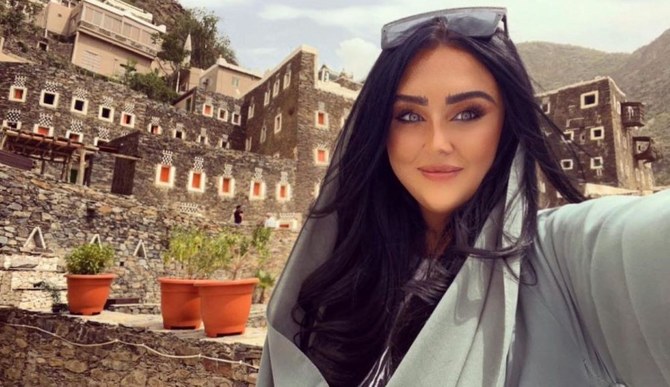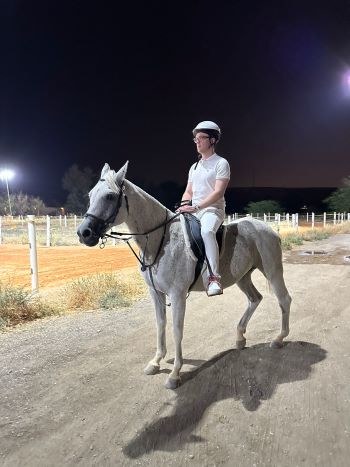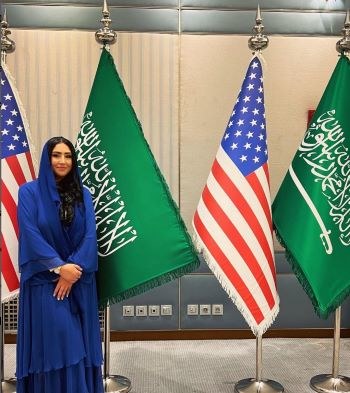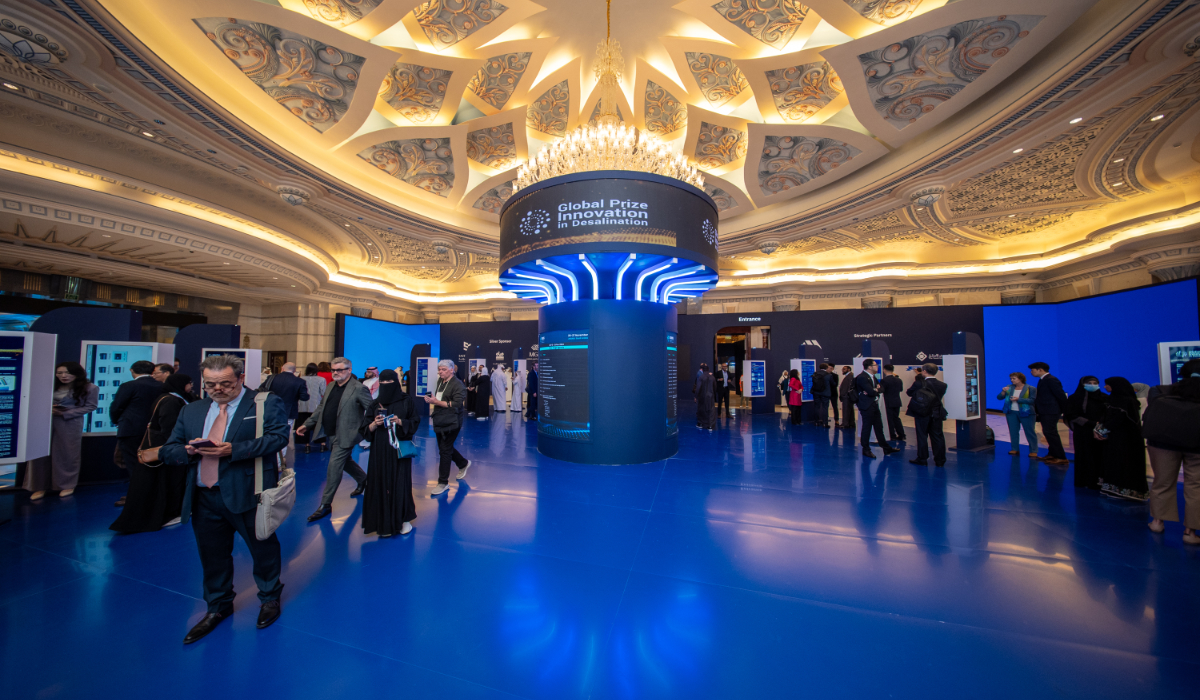RIYADH: Expatriates in Saudi Arabia often find themselves in a position where they can adopt and embrace the rich and fascinating culture of the country.
Culture sparks curiosity, ignites imagination and fosters understanding, allowing people to connect with their roots and the wider world. It is a living, breathing force that shapes our shared humanity.
Assimilation is vital as expatriates take part in local traditions, customs and values. By engaging with the local community, expats gain a deeper understanding of the Saudi way of life, forging bonds of friendship and respect. However, it is important to recognize that culture is dynamic in nature, evolving as it is passed down through generations.
Hana Nemec, originally from Cleveland, Ohio, told Arab News: “I moved here in April 2015 before Vision 2030 and the changes. I consider myself a ‘Saudi hipster’ because I moved here before it was cool.”
Nemec, who has family roots in the Czech Republic, spoke about the tolerance and acceptance she experienced from the Saudi people.
“From the moment I landed, I felt this sense of home I had never felt before. For the first time, I felt like I fitted in somewhere.
“Because I’m so deeply passionate about Saudi Arabia, its people and its culture, Saudis are usually shocked to learn that I’m not originally Saudi.
“They are even more surprised when I tell them I’m American.”
She added: “When they do realize that I’m ‘really American,’ they share stories about their time spent studying in the US, or their favorite travel spots in the States. It’s been a pleasure to develop our relationships and friendships, and hear more about how much we love and respect one another’s cultures.”
Nemec has embraced Saudi culture in almost all aspects of her life, from the way she dresses and gestures with her hands while speaking, to her love for authentic Saudi dishes such as jareesh and mutazeez.
She refused to allow the language barrier to stop her from assimilating.
“I enjoyed learning Arabic, specifically with a Saudi dialect, traveling to delve deep into the traditions and cultures of each region, and integrating into an incredible network of Saudi friends.”
She has been encouraging expats from all over the world to explore the opportunities she has enjoyed. Alongside Vision 2030, Nemec is looking forward to seeing the next generation of expats “join me here in the Kingdom to contribute to its goals — not only temporarily but long term.”
She said: “I have fallen in love with the Kingdom, its people and its culture, and I am confident that other expatriates coming for their first time, whether to visit or work, will share my sentiment.”
French expat Arthur Rossi describes culture as “an invisible thread that connects us all, transcending geographical boundaries.” He made the decision to move from Paris to Riyadh to work at the Saudi Central Bank.
“Before coming to Riyadh, I worked in Washington D.C., in Frankfurt, Paris and in London, and it is in Saudi Arabia that I have found the kindest and most welcoming people,” he told Arab News.
Rossi adopted the Saudi culture in numerous ways. “I watch Saudi shows like ‘Masameer’ — my favorite character is Turad.” He also occasionally wears traditional male, tailor-made thoub and shemagh.
He is learning Arabic and has begun following the Saudi football league and Al-Ittihad. “I am trying to learn more about Islam and Arabic calligraphy, and I also often visit architectural landmarks such as Diriyah, which is the heart of the Kingdom in Riyadh.”
Saudi citizen Sarah Khaled told Arab News: “Culture in our household became a mixture of Saudi and Spanish traditions. That is mainly because my neighbors moved from Spain to Riyadh in 2022.”
She said that every Friday, her 5-year-old twins wake to the smell of paella, the Spanish rice dish. “Our children have even mingled and played a lot in the past year and started teaching each other their respective languages.
“Despite cultural and language differences, we as Saudis have shown remarkable tolerance and acceptance toward expatriates, inspiring coexistence and harmony toward a joyous societal blend.”
Indian resident Faiz Al-Najdi arrived in Riyadh in April 1997 when he began his career with Saudi Oger Ltd. He now lives and works in Yanbu as a senior structural engineer with Egis, a project management consultancy for SEVEN, which is responsible for Saudi entertainment ventures mandated by the Public Investment Fund.
“The first thing that I had noticed about the local people, both Saudis and expats, was how particular they are about performing prayers five times a day, even during office hours.
“Frankly speaking, I was not at all mindful about prayers. However, as time passed, I also changed myself and began to adapt and became a regular visitor to mosques,” he said.
Expatriates in Saudi Arabia often develop a deeper appreciation of the values and teachings of Islam as they immerse themselves in the nation’s culture. This trend reflects the power of cultural exchange in fostering mutual understanding and bridging gaps. It also highlights the open-mindedness and acceptance within Saudi society, creating an ideal environment for expats seeking a spiritual awakening.
Al-Najdi said that a profound spirituality permeates the country, whether it is the serene atmosphere of the holy cities or the echoes of the adhan (call to prayer) in the streets.
Culture is a rich tapestry of traditions, languages, customs, arts and beliefs that reflect the uniqueness of each society, a kaleidoscope of creativity that celebrates human diversity and illuminates our lives.



































